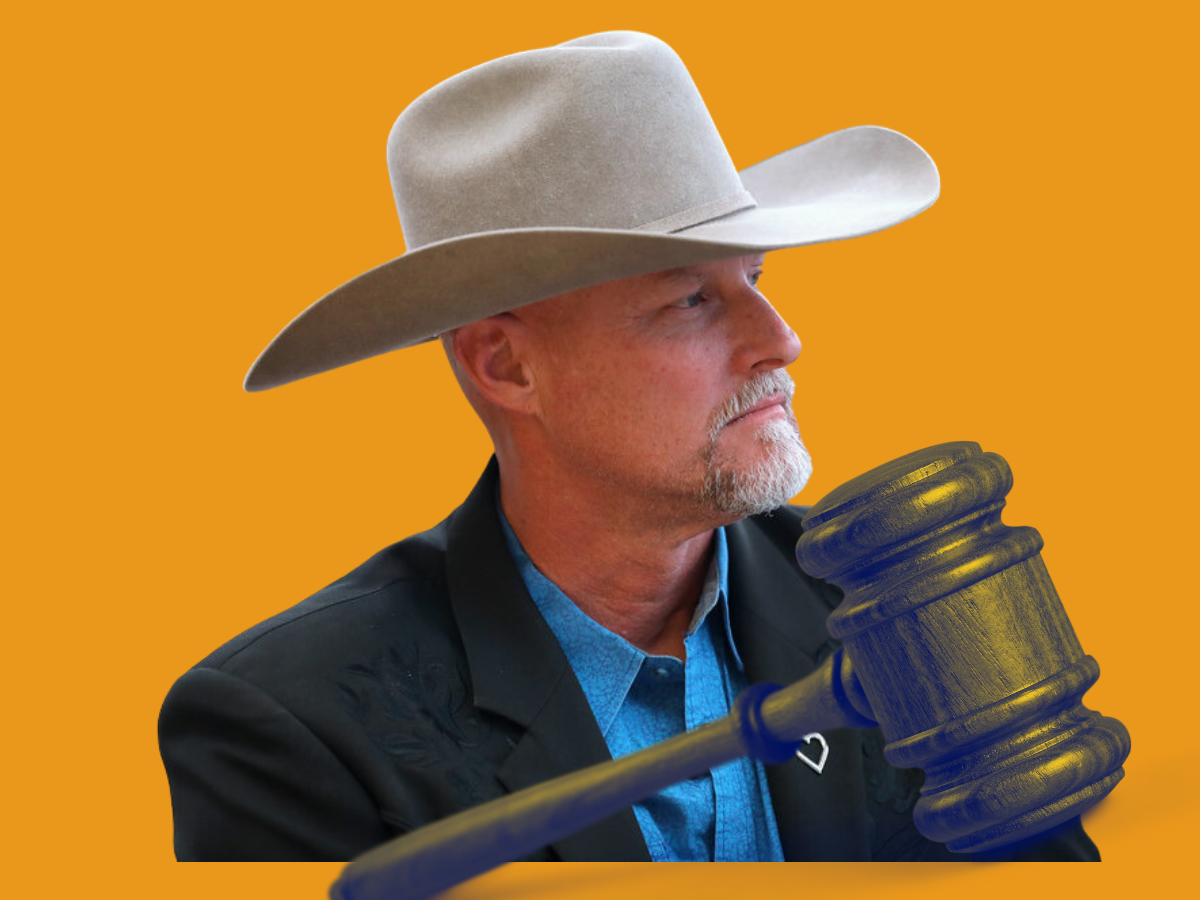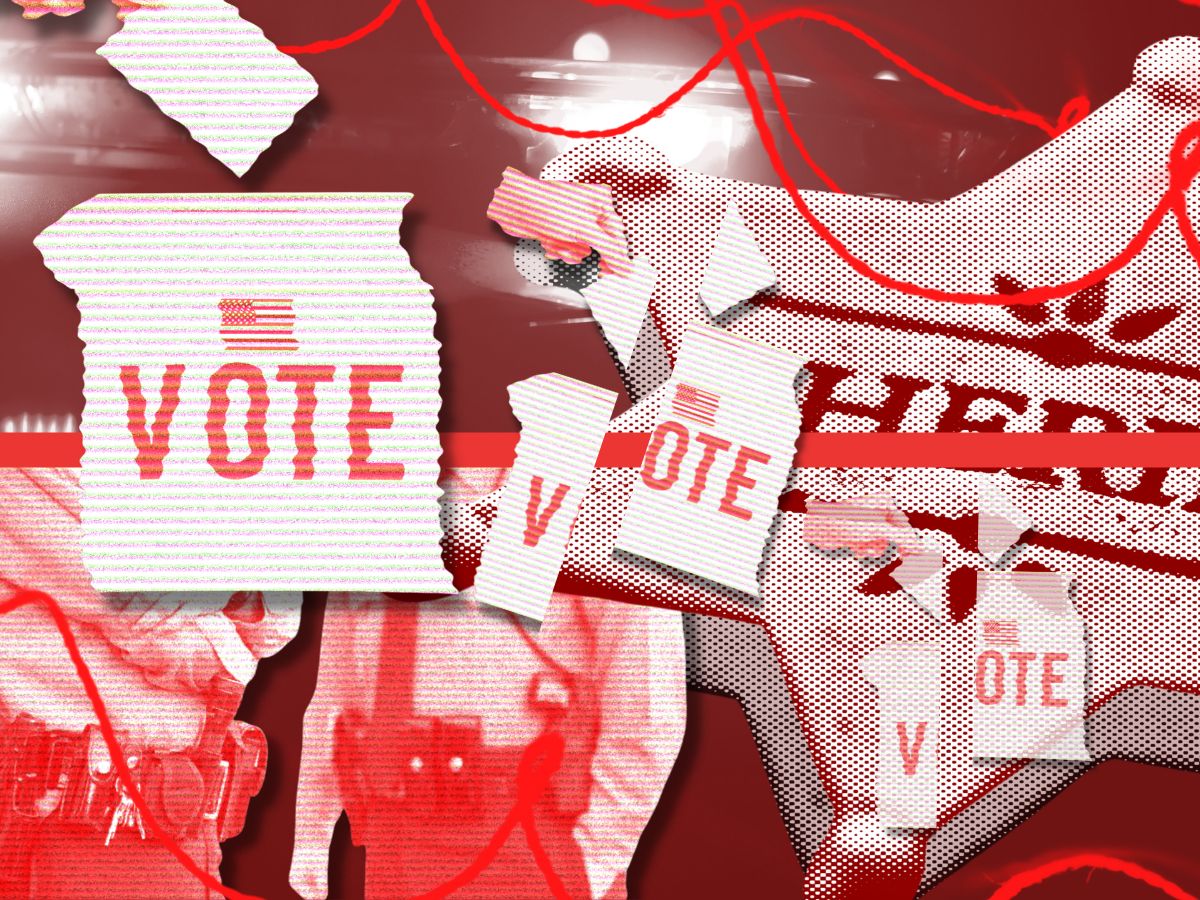
The Constitutional Sheriffs Movement and Election Denial
Election-denial activists have encouraged “constitutional sheriffs” to bolster partisan election investigations and further undermine faith in U.S. democracy. American Oversight is investigating the movement and its adherents’ ties to election denial and voter-fraud alarmism.

The “constitutional sheriffs” movement — a fringe theory that holds that sheriffs have more law enforcement power in their home counties than any other government body or individual — has risen in influence over the past decade. Adherents believe that county sheriffs are the ultimate authority in determining the constitutionality of the laws they must enforce — including on matters of election administration.
In recent years, the movement has brought its work to the election denial space, with many constitutional sheriffs running for office and on promises not to enforce certain laws and others working as self-appointed election police in 2020 and 2022. Election deniers have encouraged constitutional sheriffs to monitor elections and launch investigations in efforts to further undermine faith in the security of voting.
The movement’s most prominent group is the Constitutional Sheriffs and Peace Officers Association (CSPOA), which was founded in 2011 by former Sheriff Richard Mack of Graham County, Ariz. The organization claims on its website that “the Constitution makes it clear that the power of the sheriff even supersedes the powers of the President” — a theory that legal scholars say has no grounding in law.
Background
Before founding CSPOA, Mack was a longtime board member of the Oath Keepers, alongside founder Steward Rhodes, who in late 2022 was convicted of seditious conspiracy for his role in the Jan. 6 insurrection. In 2022, Mack stepped down as CEO of CSPOA, and Sam Bushman, a far-right podcaster, assumed the role.
One member of CSPOA who was involved in efforts to undermine the 2020 election was Sheriff Christopher Schmaling of Racine County, Wis. In 2021, Schmaling recommended charging five members of the bipartisan Wisconsin Elections Commission with misconduct and fraud for measures they took to facilitate coronavirus safety protocols for voters living in nursing homes. A year later, Schmaling did not investigate or recommend charges against a resident who illegally requested multiple absentee ballots to prove election fraud is possible, instead blaming the state’s top election officials.
In May 2022, CSPOA said it was encouraging its members to launch investigations into the 2020 election in their own states. Sheriff Dar Leaf of Barry County, Mich., began investigating alleged voter fraud after the 2020 election, with other inquiries opened by sheriffs in Arizona, Kansas, and Wisconsin. At CSPOA’s annual meeting that summer, it announced that it had teamed up with voter-fraud alarmist group True the Vote — whose founder, Catherine Engelbrecht, was jailed later that fall for refusing to comply with a court order in a case challenging True the Vote’s claims about an election software company — to investigate claims of 2020 voter fraud and to police future elections.
American Oversight’s Investigations
American Oversight has submitted public records requests in more than a dozen states to the offices of sheriffs — including Schmaling and Leaf — seeking communications with specific election conspiracy theorists and activists such as Trump National Security Adviser Michael Flynn, Arizona Rep. Mark Finchem, MyPillow CEO Mike Lindell, the constitutional sheriffs group Protect America Now, and Engelbrecht. We also requested any communications Schmaling may have had in connection with the Wisconsin Assembly’s partisan review of the 2020 election.
In September 2022, Leaf responded to our request for communications, confirming that such records of communication with True the Vote existed, but withheld them under an exemption in the state’s public records law for records related to law enforcement proceedings. American Oversight sued for the release of the records, arguing that those communications did not constitute legitimate law enforcement work, given the lack of any credible evidence of widespread voter fraud and the misinformation propagated by True the Vote. Leaf’s attempts to shield his communications, American Oversight said, was “an abuse of his position” that “subverts the public’s right to know how the government is spending taxpayer resources.”
In January 2023 and in response to our litigation, Leaf’s office released a partial response to our records request. The released records include communications with Engelbrecht and additional constitutional sheriffs, as well as with Seth Keshel, a former Army intelligence officer who has claimed that the 2020 election was illegitimate at dozens of election denial events across the country.
American Oversight has also requested records related to the participation of certain sheriffs at the Claremont Institute’s 2022 “Sheriffs Fellowship,” a week-long meeting of constitutional sheriffs in Huntington Beach, Calif., that focused on conservatism, the Constitution, and the “roots of radical leftist ideology.” We will update this page as more findings become available.

